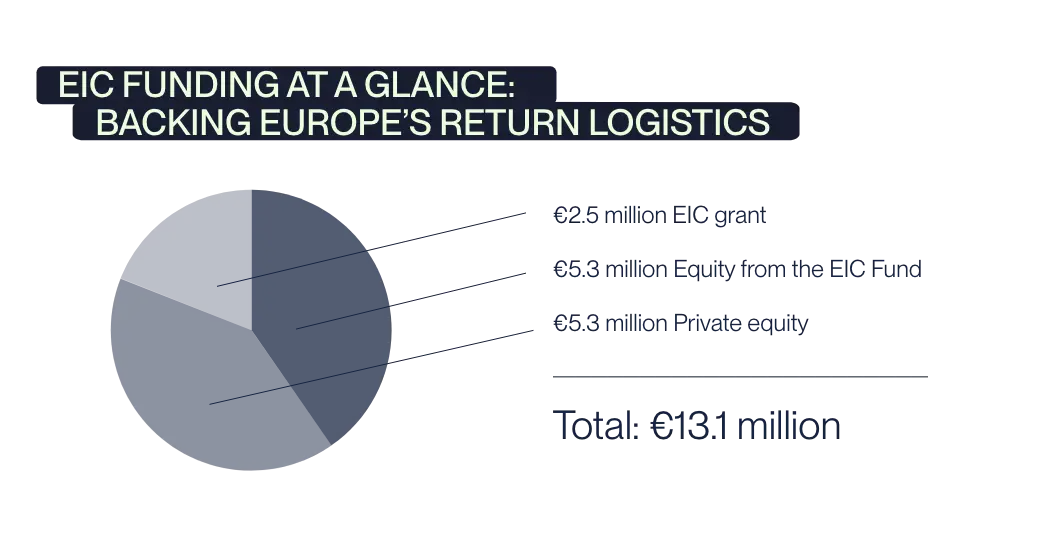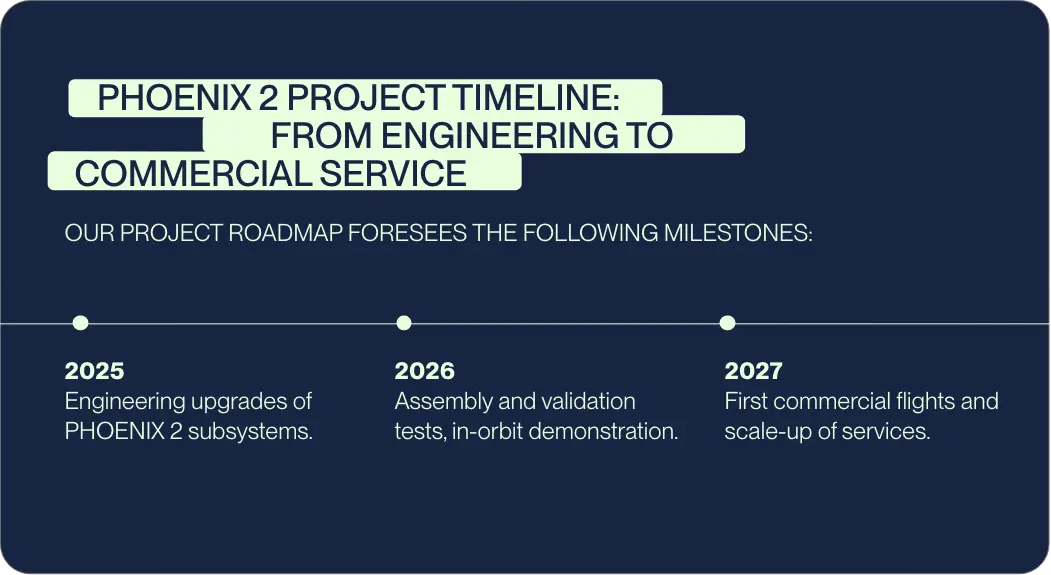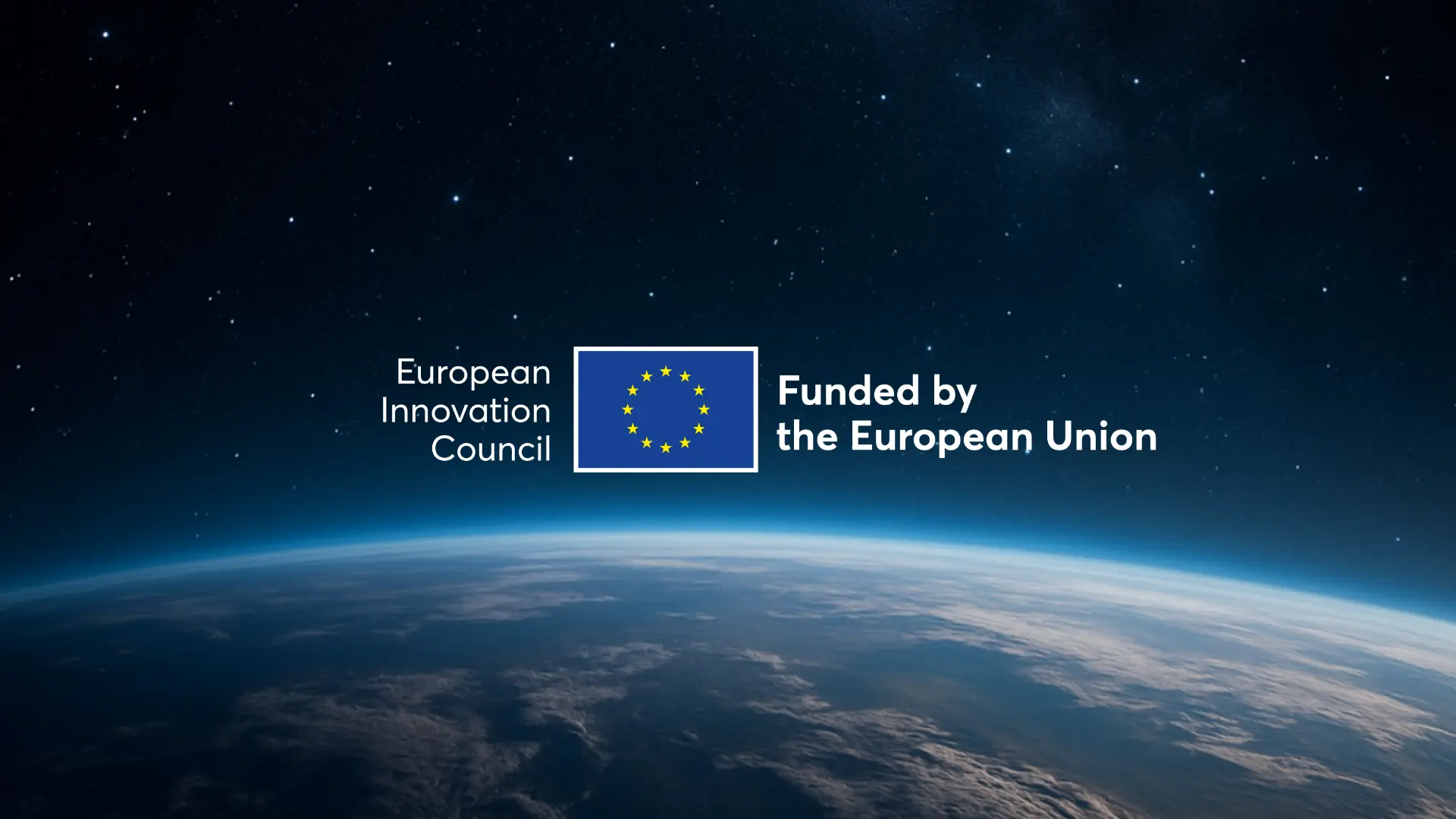EIC grant agreement number under HORIZON Europe program: 101218292
PHOENIX 2: RETURN LOGISTICS AS THE BACKBONE FOR EUROPEAN
INFRASTRUCTURE FOR SCIENCE AND MANUFACTURING
ATMOS has been selected by the European Innovation Council (EIC) Accelerator, a key program of the European Union’s (EU) Horizon Europe framework that strategically targets companies developing high-impact innovations with the potential to create new markets or disrupt existing ones.
The EIC Accelerator program supports the validation of PHOENIX 2, our reusable free-flying orbital capsule, equipped with advanced propulsion, power, and communication systems and our patented Inflatable Atmospheric Decelerator (IAD) for life sciences and materials science missions.
Two PHOENIX 2 capsules will be assembled for field validation and in-orbit demonstration to reach TRL 9, building the foundation for a re-entry service that completes Europe’s orbital infrastructure by adding the missing link: reliable return logistics.
THE CHALLENGE: LIMITED RETURN FROM SPACE
Global orbital launches are increasing rapidly, but only a small fraction include a return option – about 3% in 2022. Return services remain prohibitively expensive, often exceeding €100,000 per kilogram, with lead times of 12 to 18 months. This situation constrains a growing demand for flexible research in orbit, particularly in biomedicine and semiconductor development, where frequent returns and short innovation cycles are critical. Current and upcoming return vehicles favor larger payloads with highly limited or inflexible return capacity. Small and medium-sized missions face additional barriers, from lengthy regulatory procedures to fragmented supply chains, which further delay projects and inflate costs.
OUR SOLUTION: REUSABLE RE-ENTRY CAPSULES FOR ROUTINE RETURN
PHOENIX represents a new generation of reusable re-entry capsules designed to close the loop between Earth and orbit. It enables access to microgravity on demand – from as little as three hours to as long as three months in Low Earth Orbit – combined with the safe, flexible, and cost-efficient return of life science and advanced materials payloads.
The reusable PHOENIX 2 capsule relies on an innovative Inflatable Atmospheric Decelerator (IAD) that functions both as a heat shield and as a parachute. By initiating deceleration at higher altitudes, the system reduces the aerothermodynamic loads on the capsule and its heat shield, enabling the use of lighter materials and structures. Equipped with a patented air-breathing system developed by ATMOS, PHOENIX advances the next generation of re-entry technology by increasing payload ratios and lowering costs compared to traditional ablative or tile-based vehicles.
Inside, a pressurized and thermally controlled payload bay provides stable conditions for sensitive life science experiments and manufacturing payloads. PHOENIX 2 is powered by solar panels for long-duration missions and experiments while offering high-bandwidth communications ensuring continuous data exchange and telecommand capabilities for customers on Earth.
Thanks to its aerodynamic design and on-board propulsion, PHOENIX can de-orbit on command, enabling flexible mission duration and precise landings in designated European recovery zones. Payloads can be retrieved within hours of splashdown, giving customers rapid access to their results. These features accommodate the needs of many small and mid-sized payloads for life sciences and advanced materials.
MARKET AND IMPACT: ENABLING SCIENCE, MANUFACTURING, AND SOVEREIGNTY
ATMOS focuses on the life sciences and semiconductor sectors within the growing in-space manufacturing landscape, both of which rely on routine and flexible access to and from orbit. Current return options are scarce, costly, and optimized for large-scale missions, leaving research organizations and companies without suitable solutions for smaller, more frequent payloads.
PHOENIX 2 changes this dynamic by offering a reusable return capsule specifically designed for small to medium payloads. This enables faster iteration cycles in biotechnology, pharmaceutical development, and advanced materials research, supporting breakthroughs in cancer studies, stem cell therapies, three-dimensional bioprinting for organ transplantation, and next-generation semiconductor production.
Beyond research, PHOENIX 2 contributes to a circular space economy. Its reusable design, fuel-free re-entry, and green propulsion systems reduce emissions, conserve resources, and establish a sustainable model for Europe’s orbital logistics.


